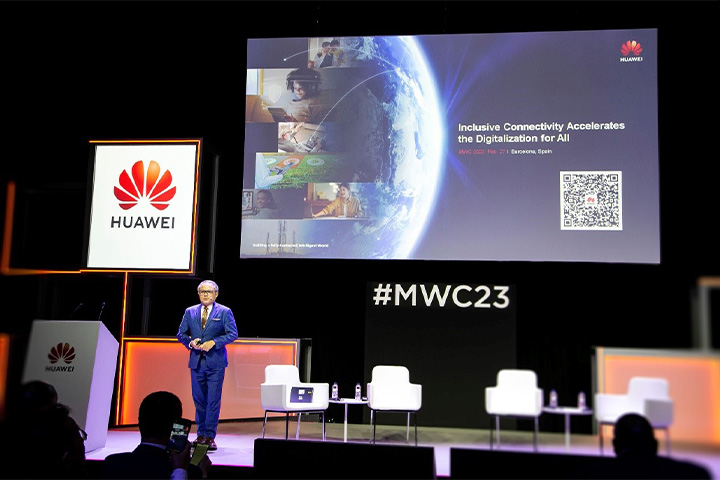[Barcelona, Spain, February 27, 2023] Huawei launched the Inclusive Connectivity 2.0 Solution at the Mobile World Congress (MWC) 2023. The launch was part of the "Accelerating Digital Transformation of Public Services" session, a gathering of more than 150 public service experts from 20 countries. The session focused on the trends in the sector's digital transformation, looking at ways to promote economic and social development while improving the quality of life of citizens.

Despite the growing access to connectivity, 400 million people around the world still lack access to mobile broadband networks (about 5% of the population). In low- and middle-income countries, rural residents are 33% less likely to use mobile Internet than urban residents.
In light of this, governments around the world have launched strategies to connect rural areas by building digital infrastructure in remote areas. The ultimate goal is to achieve inclusive and equitable digital services, bridging the digital divide.
Huawei's solution is crucial for countries looking to bridge the digital divide. Andrew Zhang, Vice President of Huawei Public Sector, explained: "A leading global provider of information communications technology, Huawei has supported many governments in their digital transformation journey. Our innovative solutions can help bridge the digital divide, enable inclusive connectivity, bringing the digital world to everyone."
At MWC 2023, Huawei launched its Inclusive Connectivity 2.0 Solution, which facilitates network construction in remote areas with complex environments. The solution combines datacom, optical network, and wireless products, designed to bring connectivity to rural and remote mountainous areas.
The goal behind Inclusive Connectivity 2.0 is to reduce network construction costs and speed up roll out, driving fast and cost-effective national informatization. It helps governments around the world improve service delivery and improve the quality of life in hard-to-reach areas.
Today, public services must be focused on people. Therefore, it is instrumental to build the "cloud + network" infrastructure via top-level design to deliver comprehensive digital public services to citizens and achieve interconnection throughout.
The integrated "cloud + network" architecture enables the public sector to easily and securely exchange data across networks and regions, offering one-stop services for the public. At the same time, it can create a centralized, secure, and reliable bearer environment for government departments to connect with each other and increase their collaboration efficiency. This ultimately achieves higher governance efficiency.
Hong-Eng Koh, Global Chief Public Services Industry Scientist of Huawei, said: "Huawei enables our government, education and healthcare clients globally in their digital transformation journey through our comprehensive technologies including 5G, F5G, Cloud, Big Data and AI. We help our clients in their national backbone, last mile connectivity, to achieve their goals in digital society, digital economy and digital government."
Chris Baryomunsi, Minister for ICT and National Guidance in Uganda, said:"In building pervasive, intelligent digital infrastructure all over the country, the government has diligently worked towards expanding the nation's digitalization in a number of fields, in order to unleash the multiplier effect of ICT on associated secondary and tertiary industries for tremendous impact on the economy."
Huawei's mission in government and public services is to help countries and regions "Enhancing national digital infrastructure, Accelerating public services digital transformation". We hope to help governments around the world go digital.